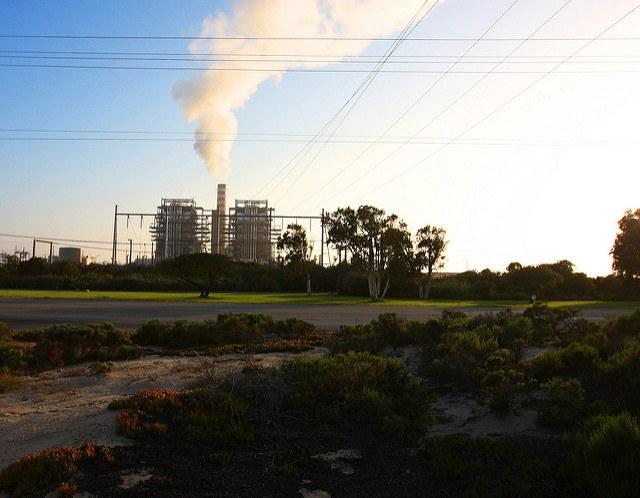
More than 170 civil society groups worldwide have a message for the Green Climate Fund, the financial mechanism of the Paris climate agreement. They're calling on the fund's board to reject the accreditation of two international banks, HSBC and Crédit Agricole, citing their connections to the coal sector.
Both rank among the top 20 private-sector banks that finance coal. HSBC extended over $8.7 billion to coal from 2005 to April 2015, and Crédit Agricole extended $7.7 billion to coal during the same time period.
A project in South America serves as an example of how both banks fund the coal sector. HSBC invested $3.13 billion in the companies responsible for the Cerrejon project in Colombia, which is the largest open-pit mine in South America. Cerrejon has a big climate change impact plus it is linked to the forcible displacement of farming communities and destruction of sacred sites. Crédit Agricole is the lead arranger on a $6.8 billion corporate loan to Glencore, the co-owner of the Cerrejon project.
Coal is a big cause of climate change. The combustion of coal “adds a significant amount of carbon dioxide to the atmosphere per unit of heat energy,” according to the Energy Information Administration (EIA). The carbon emitted from the combustion of coal is greater than from the combustion of other types of fossil fuels. And coal in general is the “most polluting of all fossil fuels,” as Greenpeace puts it.
"The Green Climate Fund Board must reject HSBC and Crédit Agricole. Creating new business for big banks with large fossil fuel portfolios and poor records on human rights and financial scandal would undermine the very purpose of the Fund,” Karen Orenstein of Friends of the Earth U.S. said in a statement.A BankTrack briefing from May 2015 highlights some of Crédit Agricole’s coal investments, and describes the bank as “key coal player globally.”"Accrediting HSBC and Crédit Agricole would be inconsistent with both the Paris Agreement, and with upholding high human rights standards," stated Annaka Peterson of Oxfam.
"The accreditation of these banking giants would jeopardize the reputation of the Green Climate Fund and expose it to unnecessarily high fiduciary risk," added Yann Louvel of BankTrack.
While the bank has “specific policies” on its coal financing, the brief points out, the problem is the effectiveness of those policies. One of the limitations of its coal financing policy is that it "does not apply to Crédit Agricole’s financing of coal companies through general corporate loans or underwriting,” BankTrack reports. Even if the policy does apply to advisory services, “it is still not stringent enough.”
For example, the bank provided services in 2014 for the proposed 500 megawatt coal-fired Plomin plant in Croatia and “has not yet ruled itself out of financial involvement in this project which is facing huge public opposition,” the group reports.
BankTrack recommends that Crédit Agricole take the following actions:
- Commit to end any new coal project financing and to decrease the general corporate coal financing for both coal mining and coal power.
- Commit to living up to its responsibilities to communities around the globe by refusing future business for coal companies and projects linked to human rights abuses.
- Take BankTrack’s Paris Pledge to quit coal.
A look at the policies of both banks concerning coal is very interesting. Crédit Agricole states that “coal plays a major role as a global source of energy, in particular for electricity generation," but admits that coal-fired plants account for a "significant share of greenhouse gas (GHG) emissions related to human activity.”
HSBC states that coal-fired power plants are “the most significant contributor to climate change.” Yet, its ambiguous policy on financing them is that it will “increasingly support only new [coal-fired plants] which have lower carbon intensities.” It has different policies for developed and developing countries and “will require more robust standards for developed countries.” Meanwhile, HSBC brags that it has committed to reducing its annual carbon emissions per employee.
Both banks clearly realize that coal plays a big role in climate change. It is time for them to stop funding the sector.
Image credit: Rennent Stowe

Gina-Marie is a freelance writer and journalist armed with a degree in journalism, and a passion for social justice, including the environment and sustainability. She writes for various websites, and has made the 75+ Environmentalists to Follow list by Mashable.com.














